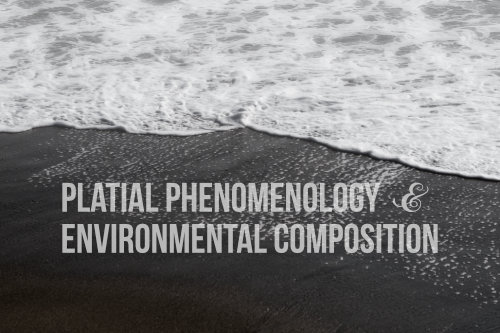
Platial Phenomenology and Environmental Composition
My doctoral research was conducted at the Institute for Sonic Creativity, De Montfort University, under the supervision of Peter Batchelor and John Young.
Abstract
This study concerns environmental music, defined as electroacoustic music that makes prominent use of field recordings. Though this practice requires the composer to engage with the ontology and phenomenology of place, these relationships have remained under-theorised. This study addresses this lacuna by developing a rich vocabulary of place that can aid both the practice and analysis of environmental music. The historical development begins with the multiplicity of concepts of place that were known to the Ancient Greeks. One of these, Ptolemy’s geos, based on a geometric, God’s-eye view of the world, has dominated understandings of geography. This perspectivism was reinforced by Alberti’s optics, which placed a viewer in a strict topological relationship to the object of their gaze, and Cartesian rationalism, which reduced place to mere secondary characteristics of an ordered, homogeneous space.
Several alternative models of place will be discussed as being more suited to an understanding of an integrated sensorium. Topos, exemplified by tales like The Odyssey, emphasises the perambulations of an individuated subject, foregrounding the experiential nature of the journey itself. The klimata of Ptolemy models place as psychic zones of influence on the Earth. Plato’s khoros is both receptacle and material, a generative site of instability and unknowability.
Taken together, these concepts assert the primacy of place as milieu, a responsive context that shapes, and is shaped by, being-in-the-world. The word platial is proposed as an apt term to encompass this understanding. This thesis is supported by the phenomenology of Martin Heidegger and Maurice Merleau-Ponty, as interpreted by Tim Ingold and Edward Casey. Analysis of the environmental music of Dallas Simpson, Robert Curgenven, and the author illustrate how platial thinking can provide deep insights into a variety of practices, including performance, installation, fixed composition, and multimedia works.
Publication
Published under my passport name of Robindra Parmar. Access at De Montfort University.